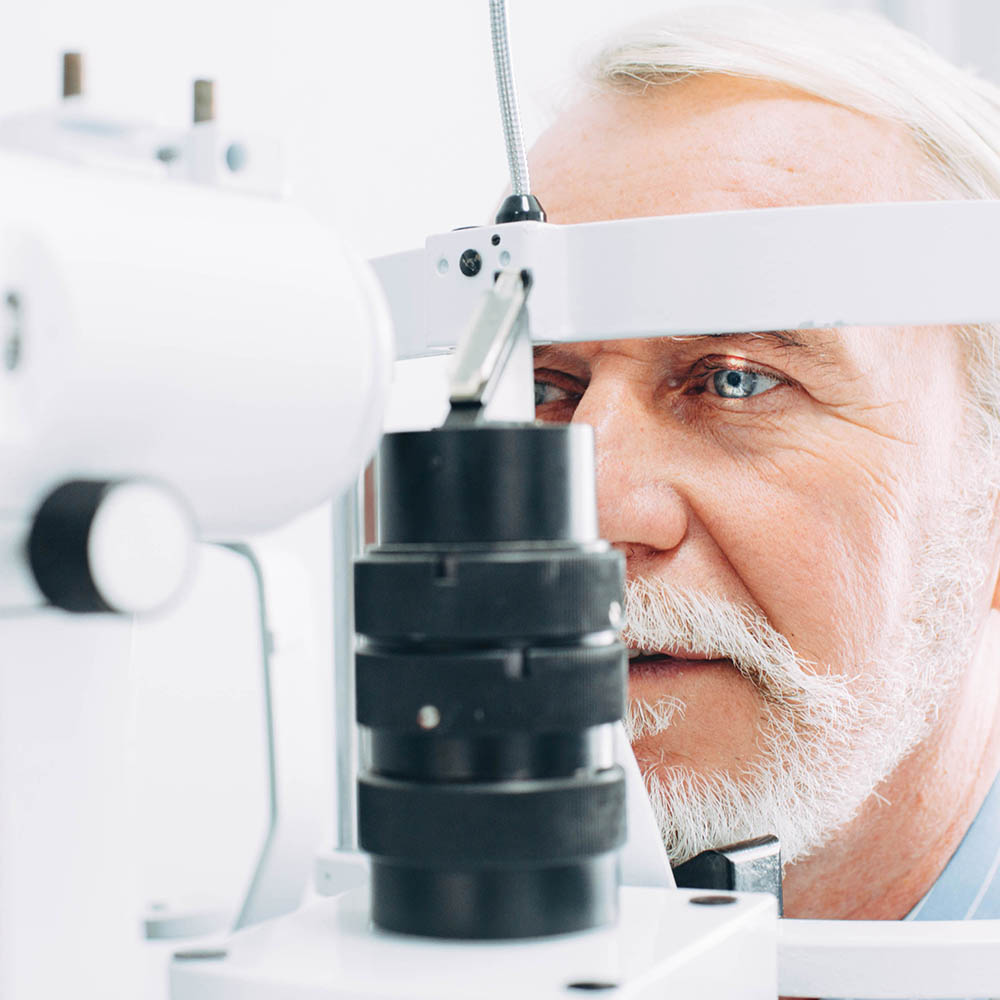
Early diagnosis means earlier treatment and better outcomes.
Whether you have glaucoma, macular degeneration (AMD), diabetic retinopathy, cataracts, or other eye diseases — we can help.
At Memorial Eye Center - Heights Blvd, we provide comprehensive eye exams, diagnostic screening and cutting-edge treatments that can slow eye disease progression and help maintain your vision.

Eye Disease Management Includes:
-
Comprehensive eye exam
Comprehensive eye exams are critical in catching sight-robbing eye diseases that typically don’t show early symptoms.
-
Diagnostic screening
Certain changes in your eyes can indicate eye conditions. Our optometrists can diagnose the disease and determine the cause of these changes.
-
Treatments and surgeries
We provide a wide range of treatments, including prescription eye drops and other medication. If needed, we'll refer you to the right doctor for eye surgery.
-
After care and follow-up
We provide follow-up exams and after-care treatments to help you manage your symptoms and safeguard your vision.
What Are the 4 Most Common Eye Diseases?
-
Diabetic Retinopathy
If you have diabetes, you should be aware of the risk of diabetic retinopathy. Elevated blood sugar can cause blood vessels in the eye to become inflamed or swell. In the early stages, you may not notice symptoms, but advanced diabetic retinopathy can cause blurred vision or eye inflammation.
Diabetic retinopathy treatment includes:
- Prescription medication
- Laser surgeries
- Anti-VEGF and steroid injections
- Vitrectomy
-
Glaucoma
Glaucoma is a leading cause of blindness and often doesn’t show early symptoms. High pressure inside the eye causes glaucoma, and the purpose of glaucoma management is to reduce intraocular pressure.
Glaucoma treatments include:
- Prescription eye drops or medications
- Laser procedures
- Filtration surgery
- Drainage tubes
- Minimally invasive glaucoma surgery (MIGS)
-
Cataracts
Cataracts are cloudy formations on the eye lens. They can make your vision blurry and distorted. To restore normal vision, an optometrist will recommend cataract surgery, which involves replacing the cloudy lens with an artificial intraocular lens.
-
Macular Degeneration
Macular degeneration, or AMD, occurs when the macula or the central part of the retina deteriorates. This results in blurred and distorted vision.
There are two types of AMD: Dry AMD and Wet AMD.
Although there isn’t a treatment for dry AMD, lifestyle changes and specific supplements can help prevent further vision deterioration.
Wet AMD treatments include:
- Photodynamic therapy
- Anti-VEGF injections
- Laser photocoagulation
Distorted or Blurred Vision? Have a family history of serious eye diseases?
Schedule an eye exam at Memorial Eye Center - Heights Blvd in Northside. Early diagnosis and treatment can help preserve eye health and prevent vision loss.
Eye Disease Management FAQs
Yes. Genetics increase our chances of developing diseases that impact vision and eye health.
In fact, over 350 eye diseases are attributed to hereditary factors, including age-related macular degeneration (AMD), cataracts, glaucoma, and retinitis pigmentosa. Learning about your family’s medical history can provide important clues regarding your predisposition to certain eye diseases and vision problems.
Adopting a healthy lifestyle and getting regular eye exams can improve your chances of maintaining clear vision and eye health.
Make sure to:
- Avoid smoking
- Maintain healthy blood sugar levels if you have diabetes
- Wear sunglasses that offer 100 UV protection
- Have regular eye exams
Although certain eye diseases show specific symptoms, the signs vary according to the condition. Keep in mind that some eye diseases, such as glaucoma, often don’t show early symptoms—which is why it's important to get regular eye exams.
If you experience any of the following, contact Memorial Eye Center - Heights Blvd immediately.
- Blurry or double vision
- Eye inflammation or eye pain
- Eye Floaters
- Eye swelling
- Blind spots
If you experience any symptoms or have a family history of eye diseases, make sure to schedule a consultation and eye exam at Memorial Eye Center - Heights Blvd in Northside today.
Eye Disease Management in Northside

Meet our Eye Doctor

- Monday 9:00 am - 5:30 pm
- Tuesday 9:00 am - 5:30 pm
- Wednesday 9:00 am - 5:30 pm
- Thursday 9:00 am - 5:30 pm
- Friday 9:00 am - 5:30 pm
- Saturday 9:00 am - 1:00 pm
- Sunday Closed
- VSP
- Spectera
- United Healthcare
- EyeMed
- Aetna
- Anthem Blue Cross Blue Shield
- Medicare

